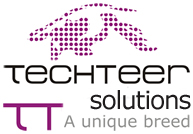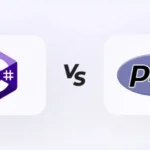C# vs Golang: Which software development language is best for your remote team? Programming languages are the foundation for a developer’s digital masterpiece. Picking the right one can dictate a project’s efficiency, performance, and overall success. C# and Golang are two of the most popular – but which is best for you?
C#: The Established Powerhouse
C# boasts a well-established reputation, particularly for its user-friendly syntax and extensive framework support. No wonder it’s ranked as the fifth most popular coding language on the TIOBE Index.
C# is a contemporary, object-oriented programming language designed by Microsoft. C#, pronounced as C-sharp is general-purpose and multi-paradigm. It encompasses static typing, lexically scoped, imperative, strong typing, functional, generic, declarative, object-oriented, and component-oriented programming disciplines.
Its similarity to languages like Java and C++ eases the learning curve for many software developers.
Frameworks like ASP.NET provide a robust environment for constructing dynamic web applications, streamlining development processes.
C# also benefits from a vast and supportive community within the .NET ecosystem, offering ample resources and documentation.
But C# might not be the optimal choice for every project. While its beginner-friendliness is an advantage, its raw performance, particularly in concurrent tasks, can lag behind Golang.
For projects demanding extreme scalability, C# might not offer the same level of flexibility as its counterpart.
Golang: The Modern Speedster
Golang has gained significant traction in recent years, primarily due to its impressive performance, particularly in handling concurrent tasks.
Golang, also known as Go, is an open-source, statically typed, and compiled programming language designed at Google by Rob Pike, Robert Griesemer, and Ken Thompson. Golang or Go is syntactically similar to C, but only with garbage collection, structural typing, memory safety, and CSP-style concurrency.
Its focus on simplicity and efficiency translates to applications that can handle high volumes of user requests with ease.
This makes it an ideal choice for building large-scale, distributed systems that require exceptional scalability.
Golang’s clean syntax and modern features resonate with developers who want a contemporary approach to web development.
The language is most popular in web services, with 36% of coders using it to develop websites.
Despite its strengths, Golang’s community and operating systems are still under development compared to C#. While resources are readily available, they might not match the expansive offerings of the .NET ecosystem.
This factor is an important one to consider if your project requires specific libraries or extensive community support.
Making the Right Choice
Ultimately, the best language hinges on your project’s specific requirements and your team’s expertise. Here’s a breakdown to guide your decision:
To prioritize user-friendliness and development speed for complex projects: C#, with its established frameworks, might be ideal.
For exceptional performance and scalability for high-traffic web applications: Golang’s prowess in concurrent tasks makes it a strong contender.
Consider your team’s existing skillset and the availability of required resources: C#’s larger community and established ecosystem might offer advantages.
Each language offers different strengths for each project. The best one for your team will align with your project’s unique needs and empower your software engineers to deliver exceptional results.
Embrace a data-driven approach, carefully evaluate your requirements, and leverage online resources and communities for further insights.



